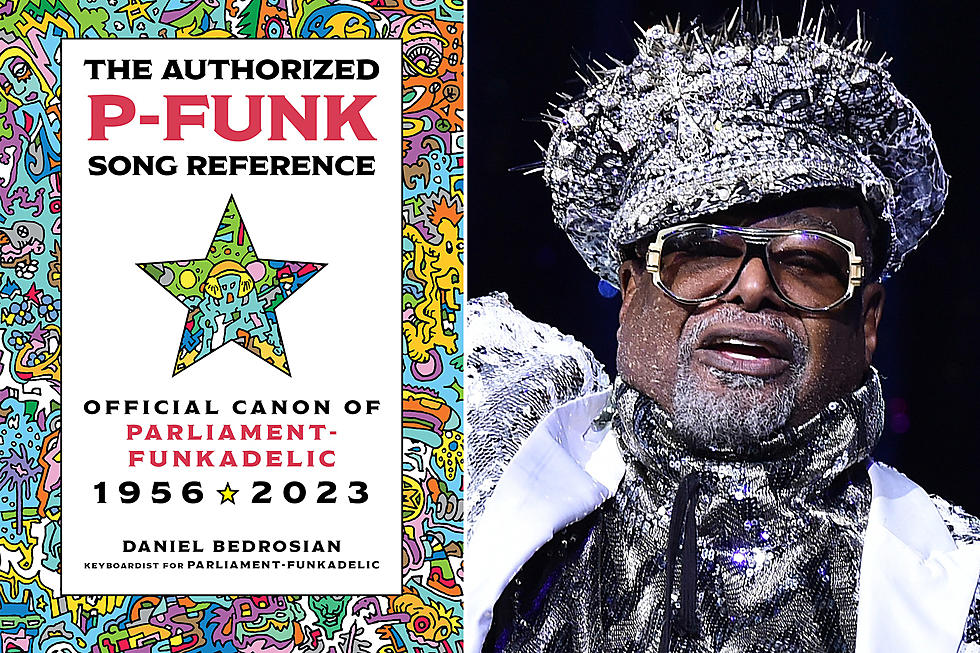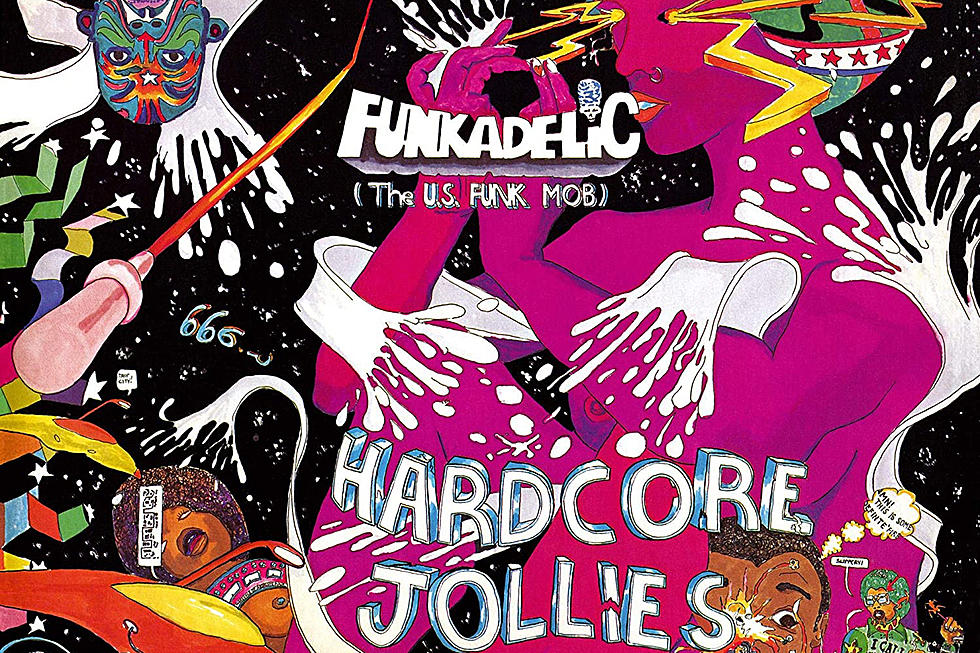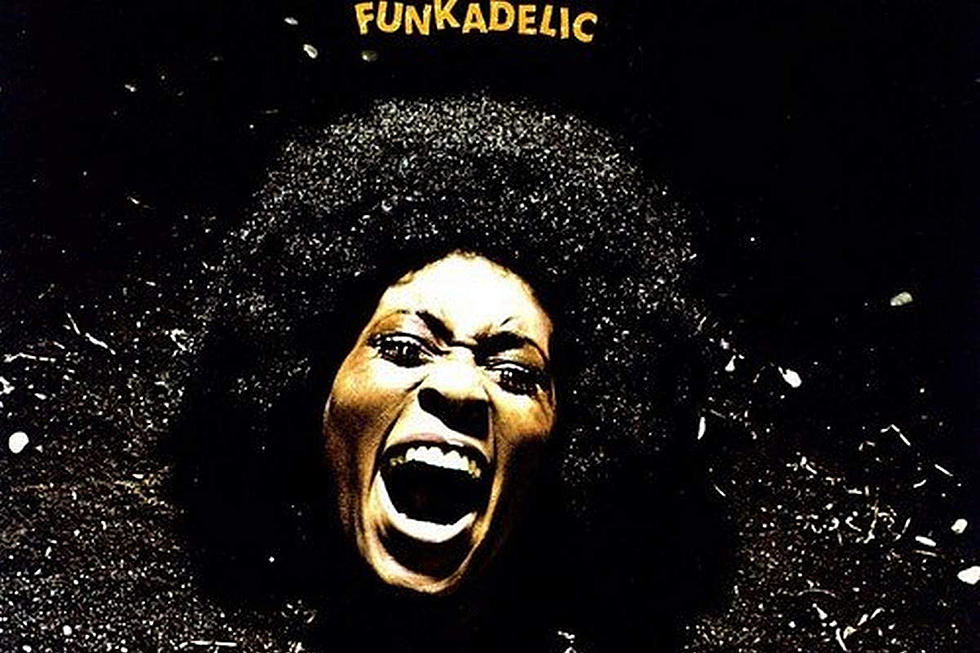
When Funkadelic Hinted at Things to Come on ‘Let’s Take It to the Stage’
At this point, Funkadelic still had a few years to go before they'd unite us as one nation under a groove, but they offered a pungent whiff of things to come with their seventh LP, Let's Take It to the Stage.
The album arrived in April 1975 with a more tightly crafted take on the band's sprawling sound, which incorporated elements of rock, soul, funk and whatever else bandleader George Clinton felt like weaving into their songs. Leaning on tighter funk-influenced arrangements, Stage served up a series of shorter cuts — only the closing track, the seven-minute "Atmosphere," really lays out — while leaving plenty of room for the loose collective's musical abilities to shine.
For Clinton, Let's Take It to the Stage was just another step in the band's evolution — a journey that, as he boasted to NME in 1978, had already taken Funkadelic and their sister act Parliament to the forefront of the musical vanguard. "James Brown, Jimi, Sly and ourselves took the whole other thing so far," he noted, "most of 'em ain't nowhere near catching up yet."
Of course, racial politics being what they were, no amount of genre-blending meant there was room for Clinton and his crew on rock radio — something he admitted figured into his musical game plan.
"It took me a while to realize that I wasn't getting played on no white stations because I was black and I didn't get played on black stations 'cause to them it sounded like I was white," pointed out Clinton in the '70s. "So then I had to go back and meet 'em halfway with the Parliament situation, the horns and things, and then hand-walk 'em up to where Funkadelic is at. ... Now they're gonna pledge grooveallegiance to the united funk of Funkadelica."
Which is not to say that there wasn't a certain amount of chaos in the studio for Let's Take It to the Stage, and Clinton's orchestrated musical madness in general. With guitarist Eddie Hazel sidelined for the Stage sessions, the band was forced to improvise a little more than usual — and it turned out to be a blessing in disguise on at least one occasion.
Listen to Funkadelic Perform 'Get Off Your Ass and Jam'
Looking back on the tracking of the song "Get Off Your Ass and Jam" in his memoir Brothas Be, Yo Like George, Ain't All That Funkin' Kinda Hard on You?, Clinton recalled how the band ended up stumbling into an unlikely new guitarist. "We finished one take, took a smoke break or something, and noticed that a white kid had wandered into the studio, a smack addict," he wrote. "We didn’t know him at all, but he said he played a little guitar, and he wanted to know if he could play with us and pick up a little cash in the process."
They stepped back, agreeing to give the new arrival a chance to prove his worth. "We set him up, started the track, and he just started to play like he was possessed," Clinton continued. "He did all the rock ‘n’ roll that hadn’t been heard for a few years, and he did it for the entirety of the track. Even when the song ended, he didn’t stop. All of us were up there goggle-eyed, saying, ‘Damn.’ We had agreed on 25 bucks, but I gave him 50 because I loved it."
Frustratingly for Clinton and the members of Funkadelic, the record offered yet another demonstration of how difficult it could be for artists to break through the color barrier at rock radio and on the pop charts. Let's Take It to the Stage gave the band another R&B hit, peaking at No. 14, but stalled at No. 102 on Billboard's Top 200 Albums. For Clinton, it again posed the question of why mainstream success continued to elude a band that stood alongside commercial giants in terms of musical and compositional ability.
"Why couldn’t we be the Rolling Stones? Why couldn’t we be Cream? If it was just the color of our skin, that wasn’t going to stop us," Clinton vowed in his memoir. "Not when we had the tightest songs and the loudest guitars and the best singers."
In time, Funkadelic would earn some measure of that status, scoring Top 20 hits with 1978's One Nation Under a Groove and 1979's Uncle Jam Wants You. And though Clinton's often unpredictable journey soon led him away from Funkadelic for an extended stretch — their 1981 effort, The Electric Spanking of War Babies, was their last for more than 30 years — the band's ebullient crazy quilt of sound served as an effective calling card for his musical mission statement.
"Funkadelic is a combination of everything," he told NME. "Funkadelic is anything that will subsequently be thrown in. Funkadelic is an attitude to whatever it takes. You can get away with so much when you haven't got to think about structures or constructions and can leave yourself to your instincts and know that it's cool and all the musicians know it that way. Then the possibilities are unlimited."
Funkadelic and Parliament Albums Ranked
More From Ultimate Classic Rock









